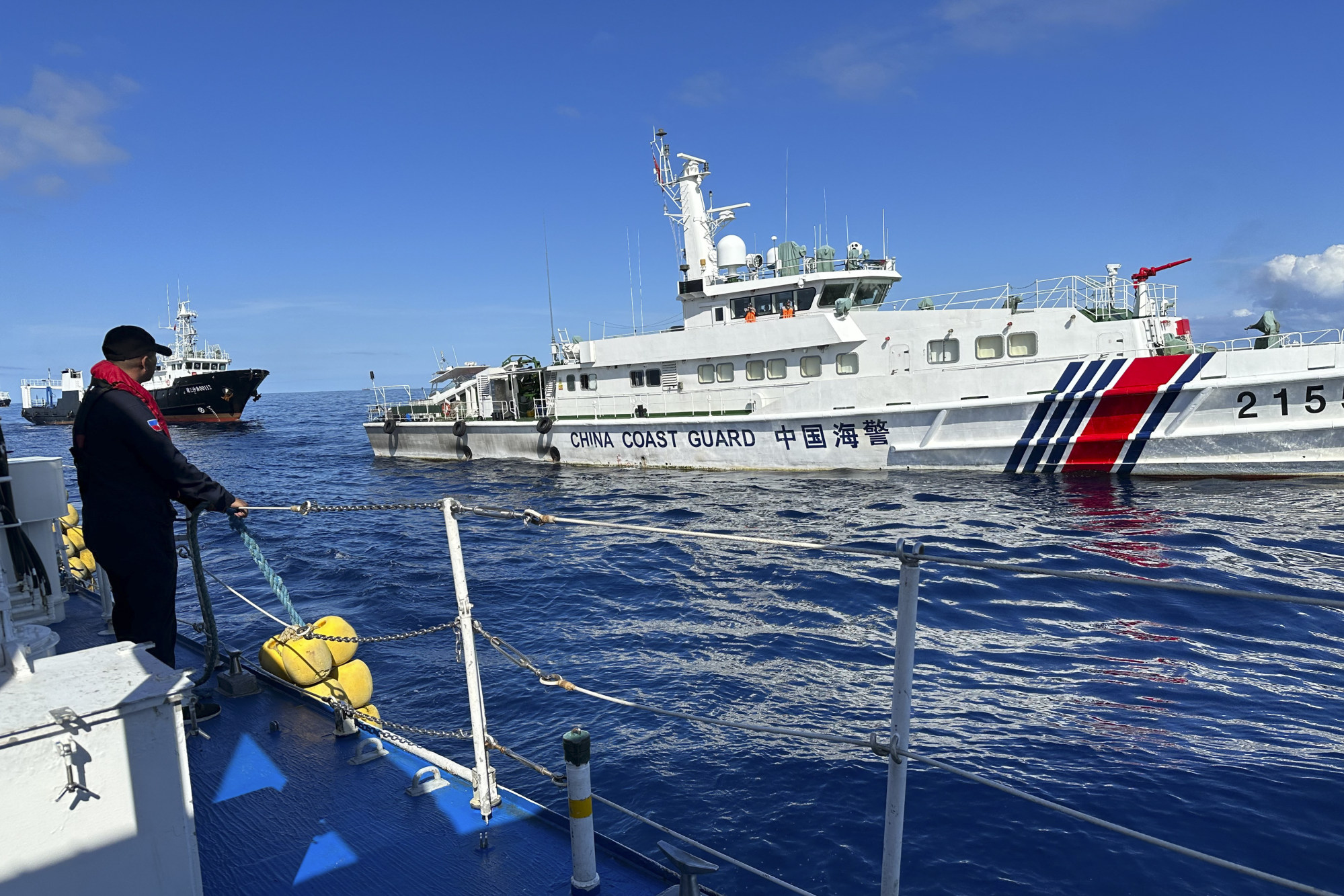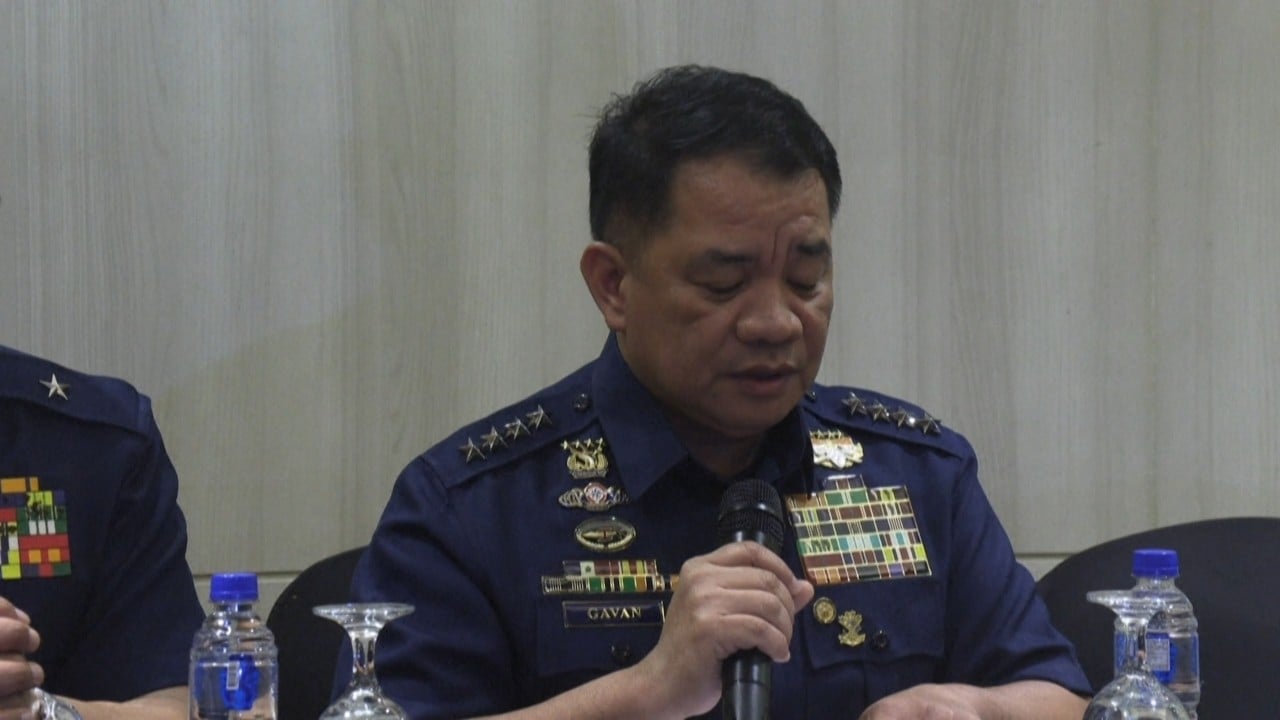South China Sea row to top agenda of Asean defence ministers’ meeting amid China-Philippines clashes
[ad_1]
On Wednesday, the Association of Southeast Asian Nations will hold the Asean Defense Ministers’ Meeting (ADMM). On Thursday, they will hold the ADMM-Plus session, which will also include eight of the bloc’s dialogue partners, including China, Japan, India and the United States. US Defence Secretary Lloyd Austin is expected to attend.
Manila has accused Beijing of making aggressive efforts to assert its claim to almost the entire South China Sea, while China has claimed that the Philippines has trespassed on Chinese waters.
Dozens of Chinese coastguard vessels and accompanying ships also chased and encircled Philippine vessels in the latest confrontation, as a US Navy surveillance plane flew in circles, kept close watch.

Dedi Dinarto, an associate at strategic advisory firm Global Counsel’s Singapore office, said the ADMM is expected to focus on defence cooperation, including discussions on how to strengthen defence capacity building through training and education.
“The spotlight is likely to shift towards maritime security, marking a departure from the previous focus on Covid-19 recovery, as pledged in November last year,” Dinarto said, noting that an emphasis would be placed on maintaining maritime stability.
“Ideally, this incident should serve as a foundation for developing precautionary measures to prevent such collisions from turning into direct conflicts.”
China says ‘special arrangements’ allow Manila to supply Second Thomas Shoal
China says ‘special arrangements’ allow Manila to supply Second Thomas Shoal
The meeting with Asean’s external dialogue partners should ideally be used as a medium to convey the bloc’s commitment to promoting peace and security, Dinarto added, particularly in terms of urging China and the US to refrain from “actions that trigger instability”.
He suggested that China might instead send Liu Zhenli, a military general who many have speculated would be the next defence minister, to the meeting.
“If China chooses not to send a representative to the upcoming retreat, this may be interpreted by its Southeast Asian partners as a lack of seriousness on China’s part in maintaining peace and stability in the region, especially with the expected presence of US Defence Secretary Lloyd Austin.”

Given the ongoing tensions, Abdul Rahman Yaacob, a research fellow with the Australia-based Lowy Institute’s Southeast Asia programme, said it was important for the meeting to demonstrate Asean unity on the situation in the disputed waterways.
However, given Asean members’ widely differing positions on the issue, Rahman said he does not expect the meeting to “explicitly criticise China’s actions against the Philippines in the South China Sea, even if this is what the Filipinos could be hoping for”.
“At a minimum, I hope that any statement to be issued after the meeting will express Asean’s concerns about the situation in the South China Sea without blaming any party,” he said, adding that the meeting was expected to urge all parties to exercise restraint.
“Maritime stability and security are crucial for many Asean members”, Rahman said, noting that this “must be articulated clearly to the international community”.
John Bradford, executive director at the Yokosuka Council on Asia-Pacific Studies, said the sidelines discussions and turnovers of leadership in the working groups might create opportunities for “incremental progress” on issues of defence cooperation such as disaster response and military medicine.
Will untested Laos affect ‘unity in Asean’ over Myanmar crisis, South China Sea?
Will untested Laos affect ‘unity in Asean’ over Myanmar crisis, South China Sea?
The ADMM coincides with the joint military exercises between China and the militaries of Cambodia, Laos, Malaysia, Thailand and Vietnam.
The Philippines took part as an observer in past drills but will not be doing so this time.
Manila is looking outside Asean for military and diplomatic support in its maritime disputes with China, Rahman noted.
During the ADMM-Plus meeting, South Korea’s recently appointed vice-defence minister, Kim Seon-ho, is expected to request support from participants in managing the security situation on the Korean Peninsula, most notably the threats posed by North Korea’s advancing nuclear weapons and missile programs.
[ad_2]
Source link


